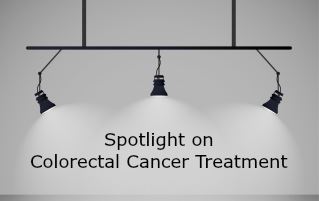Cannabidiol-based products and cancer

New UK regulations mean it is no longer illegal to use products such as cannabidiol (CBD) hemp oil for medicinal purposes.
But there is no strong scientific evidence, to date, that these are a safe and effective treatment for cancer or cancer-related symptoms.
A few weeks ago, the International Journal of Cancer published the results of a study suggesting that cannabinoids may have therapeutic potential in multiple myeloma (MM) – a type of blood cancer that starts in the bone marrow.
Cannabinoids are chemicals that can bind to, among others, proteins called CB2 receptors that are located on the surface of certain cells of our immune system. They can be natural, such as those found in the cannabis plant, or man-made.
For the above study, researchers used man-made cannabinoids, and found these could selectively kill cancer cells from MM patients. Moreover, used in mice models of multiple myeloma, cannabinoids effectively blocked tumour growth.
Cannabidiol research
Similar findings have been reported for the use, in other cancers, of naturally occurring, plant-derived cannabinoids.
One of the most researched of these compounds is cannabidiol, or CBD. It is the main active ingredient of CBD (cannabidiol) hemp oil and oil capsules, which some claim may have anti-cancer properties.
Indeed, cell and animal studies have found that CBD can reduce tumour growth in certain in cancers, including those of the brain, breast, prostate and lung.
Cannabidiol has also been shown to induce cancer cell death and to increase the tumour-killing effects of certain therapies, including ionising radiation for glioblastoma – one of the most aggressive types of brain cancer.
However, other findings have shown that cannabidiol can also have a damaging impact on cancer. This is the case, for example, of an American animal study led by the California Pacific Medical Center Research Institute.
It showed that continued treatment with CBD resulted in some brain cancer cells becoming resistant. They essentially stopped responding to treatment, and the tumour started to grow.

Insufficient evidence in humans
What’s more, and importantly, there is no evidence, to date, that cannabidiol has anti-tumour effects in people with cancer.
There are virtually no clinical trials proving that CBD can treat or improve the disease, safely and effectively. In 2013, Canadian researchers reported the case of a patient with late-stage acute lymphoblastic leukaemia (a cancer of the white blood cells), who appeared to experience some benefit from hemp oil, which supposedly contained CBD. However, this is not enough evidence to justify the use of cannabidiol-based products in cancer.
The research goes on
So, scientists are now turning their attention to whether cannabidiol might be able to alleviate cancer-related symptoms, improving quality of life for patients.
In this regard, a phase III clinical trial is being conducted on a mouth spray, which contains CBD as a main ingredient. A team led by Professor Marie Fallon, of the University of Edinburg, is assessing whether this product will be effective at treating severe cancer-related pain that has stopped responding to strong pain medications such as opioids.
No psychoactive side effects
Notably, cannabidiol is not the only active chemical found in the cannabis plant. This also contains delta-9-tetrahydrocannabinol, or THC.
Delta-9-tetrahydrocannabinol is, too, being studied as a potential therapy for treating cancer or alleviating cancer-related symptoms.
But CBD has attracted increasing attention in recent years because it does not have the psychoactive side effects of THC.
These may include panic reactions, delusions, hallucinations and disconnected thoughts.
New UK regulation on CBD products
Until a few months ago, it was illegal in the UK to use hemp oil or any other CBD-based products for medicinal purposes.
This changed in October 2016, when the UK Medicines and Healthcare products Regulatory Agency (MHRA) announced in a statement that all products containing cannabidiol are now classified as medicines.
The MHRA’s decision applies exclusively to cannabidiol. It means that people who buy CBD hemp oil or oil capsules for medicinal purposes will no longer be charged with possession.
But, it is still illegal, by UK laws, to use as medications cannabis or products that contain cannabis-derived chemicals other than CBD.
The new regulation also means that manufacturers must now have marketing authorisation to legally sell CBD hemp oil and other cannabidiol-based products in the UK.
In order to have a licence, they will need to provide proof that their products are not just effective but also safe to use.
Importantly, the fact that cannabidiol products are now considered medicines does not mean that they are licenced anti-cancer drugs.
Presently, doctors can prescribe CBD only to patients with multiple sclerosis (MS). If you are using the product for other medicinal reasons, the MHRA recommends to “speak to your GP or other healthcare professional.”
Clearly, cannabidiol-based products appear to have some therapeutic potential at the cellular and animal levels.
But the evidence from clinical trials is presently too limited to draw any conclusion on whether they might help people with cancer, significantly and safely.
Alivia Cancer Second Opinion Service
Through our innovative second opinion service, we can help you get access to the most exciting new cancer treatments and find the most decorated and highly specialised cancer surgeons and oncologists in the world to review your illness.
Creatives designed by freepic.com




